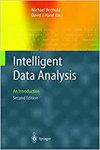Temporal attention-aware evidential recurrent network for trustworthy prediction of Alzheimer’s disease progression
IF 0.8
4区 计算机科学
Q4 COMPUTER SCIENCE, ARTIFICIAL INTELLIGENCE
引用次数: 0
Abstract
Accurate and reliable prediction of Alzheimer’s disease (AD) progression is crucial for effective interventions and treatment to delay its onset. Recently, deep learning models for AD progression achieve excellent predictive accuracy. However, their predictions lack reliability due to the non-calibration defects, that affects their recognition and acceptance. To address this issue, this paper proposes a temporal attention-aware evidential recurrent network for trustworthy prediction of AD progression. Specifically, evidential recurrent network explicitly models uncertainty of the output and converts it into a reliability measure for trustworthy AD progression prediction. Furthermore, considering that the actual scenario of AD progression prediction frequently relies on historical longitudinal data, we introduce temporal attention into evidential recurrent network, which improves predictive performance. We demonstrate the proposed model on the TADPOLE dataset. For predictive performance, the proposed model achieves mAUC of 0.943 and BCA of 0.881, which is comparable to the SOTA model MinimalRNN. More importantly, the proposed model provides reliability measures of the predicted results through uncertainty estimation and the ECE of the method on the TADPOLE dataset is 0.101, which is much lower than the SOTA model at 0.147, indicating that the proposed model can provide important decision-making support for risk-sensitive prediction of AD progression.时间注意感知证据递归网络对阿尔茨海默病进展的可靠预测
准确可靠地预测阿尔茨海默病(AD)的进展对于有效的干预和治疗以延缓其发作至关重要。最近,AD进展的深度学习模型实现了出色的预测准确性。然而,由于非校准缺陷,它们的预测缺乏可靠性,这影响了它们的识别和接受。为了解决这个问题,本文提出了一种时间注意感知证据递归网络,用于AD进展的可信预测。具体来说,证据递归网络明确地对输出的不确定性进行建模,并将其转换为可靠的AD进展预测的可靠性度量。此外,考虑到AD进展预测的实际场景经常依赖于历史纵向数据,我们将时间注意力引入证据递归网络,从而提高了预测性能。我们在TADPOLE数据集上演示了所提出的模型。对于预测性能,所提出的模型实现了0.943的mAUC和0.881的BCA,这与SOTA模型MinimalRNN相当。更重要的是,该模型通过不确定性估计提供了预测结果的可靠性度量,该方法在TADPOLE数据集上的ECE为0.101,远低于SOTA模型的0.147,表明该模型可以为AD进展的风险敏感预测提供重要的决策支持。
本文章由计算机程序翻译,如有差异,请以英文原文为准。
求助全文
约1分钟内获得全文
求助全文
来源期刊

Intelligent Data Analysis
工程技术-计算机:人工智能
CiteScore
2.20
自引率
5.90%
发文量
85
审稿时长
3.3 months
期刊介绍:
Intelligent Data Analysis provides a forum for the examination of issues related to the research and applications of Artificial Intelligence techniques in data analysis across a variety of disciplines. These techniques include (but are not limited to): all areas of data visualization, data pre-processing (fusion, editing, transformation, filtering, sampling), data engineering, database mining techniques, tools and applications, use of domain knowledge in data analysis, big data applications, evolutionary algorithms, machine learning, neural nets, fuzzy logic, statistical pattern recognition, knowledge filtering, and post-processing. In particular, papers are preferred that discuss development of new AI related data analysis architectures, methodologies, and techniques and their applications to various domains.
 求助内容:
求助内容: 应助结果提醒方式:
应助结果提醒方式:


